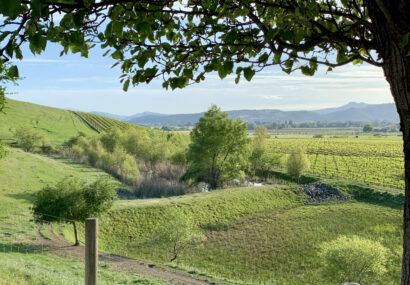By John Sittler, Esq., and Jason Groves, Esq.
On November 15, 2021, the Colorado Supreme Court upheld the Division 1 Water Court’s decision in a ditch modification case that spiraled into complex litigation challenging the Water Court’s subject matter jurisdiction and notice requirements, ultimately resulting in attorney fee awards at both the trial and appellate level. In the opinion, the Colorado Supreme Court clarified the scope of the Water Court’s subject matter jurisdiction while further strengthening its stance on several ancillary matters. [Glover v. Serratoga Falls LLC, 2021 CO 77 (Colo. 2021).]
Background and Procedural History
In 2014, Resource Land Holdings LLC and Serratoga Falls LLC (collectively: Serratoga) began a residential development project near Timnath, Colorado. An open ditch owned by Robert Glover and Gerald Kiefer (collectively: Glover) crossed the Serratoga property, so Serratoga began negotiations to pipe the ditch (KG Lateral) as part of its development plans.
Meanwhile, Serratoga installed several subdrains on its property during the project. Glover owned rights in the Paige Brothers Seepage Ditch and Paige Brother Reservoir and later claimed the new subdrains injured Glover’s water rights. During construction adjacent to the KG Lateral, a portion of the ditch collapsed and Serratoga quickly repaired the damage.
The negotiations on the KG Lateral piping continued unsuccessfully for several years, at which point Glover’s attorney suggested Serratoga file a St. Jude’s declaratory judgment action. In Colorado, ditch easement modifications are governed by Roaring Fork Club L.P. v. St. Jude’s Company, 36 P.3d 1229 (Colo. 2001)[St. Jude’s]. That case adopted the “accommodation doctrine” in Colorado and held that a property owner burdened by a ditch easement may not unilaterally move or alter the easement without first obtaining the easement owner’s consent or a court order allowing the alteration. If the burdened property owner cannot obtain the ditch owner’s consent, they may file what is now known as a St. Jude’saction to seek a declaratory judgment, typically from a district court. Courts should allow the proposed modification if the alteration 1) does not significantly lessen the utility of the easement, 2) increase the burdens on the: easement owner in its use and enjoyment, or 3) frustrate the purpose for which the easement was created. Id. at 1237. This three-party test that the Colorado Supreme Court adopted comes from the Restatement (Third) of Property (Servitudes) § 4.8(3).
Before the Water Court
However, before Serratoga could file its complaint under St. Jude’s, Glover filed its own civil complaint in the Division 1 Water Court alleging numerous claims, including trespass to a water right, unilateral alternation of a ditch easement, nuisance, and several other tort and statutory claims. In its answer to the Complaint, Serratoga counterclaimed for a St. Jude’s declaratory judgment. Upon Serratoga’s motion, the Water Court dismissed seven of Glover’s claims finding them “speculative and devoid of any factual support.”
At trial, Serratoga moved for dismissal after Glover’s case in chief. The Water Court then dismissed Glover’s claims for trespass to water right and other tort claims, leaving only claims for special damages and declaratory relief to determine the scope of Glover’s ditch easement in the KG Lateral and whether Serratoga’s proposed modifications satisfied the St. Jude’s test. In a rare move, the Water Court issued an oral ruling after trial, finding in favor of Serratoga on all counts and finding Glover and its attorney jointly and severally liable for statutory attorney fees for the dismissed claims.
Glover’s Post-Trial Motions
After trial, Glover filed C.R.C.P. 59 and 60 motions. In the Rule 59 motion, Glover asked the court to make further findings related to the trespass to water rights claims and clarify the findings related to the award of attorney fees. In the Rule 60 motion, Glover asserted, for the first time, that the Water Court lacked subject matter jurisdiction because none of the claims involved “water matters” within the Water Court’s exclusive jurisdiction. The Water Court denied both motions, ruling that it had already made “detailed findings” and that the non-water claims were “inextricably intertwined” with the water matters within the Water Court’s jurisdiction. Glover then appealed to the Colorado Supreme Court.
The Colorado Supreme Court’s Decision
On appeal, the Colorado Supreme Court considered three principal issues: 1) whether the Water Court had subject matter jurisdiction over the claims, 2) whether the Water Court correctly dismissed on the merits, and 3) whether the Water Court abused its discretion awarding attorney fees.
Water Court Subject Matter Jurisdiction
In Colorado, Water Courts “retain jurisdiction over all water matters.” Kobobel v. Colo. Dep. of Nat. Res., 249 P.3d 1127, 1132 (Colo. 2011). Whether a claim constitutes a water matter then turns on the distinction between “actions involving the use of water and those involving the ownership of a water right.” Id. The Colorado Supreme Court has previously held that actions involving the use of water include applications for water rights decrees, plans for augmentation, changes of decreed water rights, and matters concerning the scope of decreed water rights, such as abandonment and adverse possession. Allen v. State, 433 P.3d 581, 584 (Colo. 2019). Claims 1, 4, and 5 of Glover’s complaint included requests to determine the quality, quantity, and timing of flows in the KG Lateral, and the right to use water associated with decrees in the Paige Brothers Seepage Ditches and Reservoir. The Supreme Court found those claims were all “water matters” squarely within the Water Court’s jurisdiction.
The Supreme Court then addressed the well-established doctrine of Water Court “ancillary jurisdiction.” This doctrine allows Water Courts to decide non-water matter claims (such as trespass or damage claims) when those issues are:
. . .interrelated with the use of water or…directly affect the outcome of water matters within the exclusive jurisdiction of the Water Court. Kobobel, 249 P.3d at 1132.
Here, the Supreme Court concluded that because the Water Court properly exercised jurisdiction over the three water matter claims, the court’s ancillary jurisdiction extended over the water-related tort and statutory claims.
Importantly, the Court then further clarified Water Court jurisdiction over St. Jude’s cases, stating:
. . .when a [St. Jude’s] dispute requires initial determinations as to the scope of a decreed water right or any other water matters as a precursor to ensuring that the same quantity, quality, and timing is provided, then the dispute falls within the exclusive jurisdiction of the Water Court.
This finding confirmed that, although St. Jude’s cases are typically brought in state District Court, there are certain circumstances where a preliminary water matter determination is necessary for the Water Court to decide. In those cases, the Water Court properly has jurisdiction over both the water matter claims and the ancillary claims, including the St. Jude’s analysis.
Resume Notice in Colorado
The second part of the Supreme Court’s review of Water Court jurisdiction focused on “resume notice.” In Colorado, the applicant in a Water Court case is typically required by statute to publish notice of the application in local newspapers. The purpose of the resume notice is to alert potentially interested parties within the same stream system of activity on the stream. In some circumstances, such as a St. Jude’s declaratory judgment between specifically named parties, personal service is appropriate and resume notice is not required. S. Ute Indian Tribe v. King Consol. Ditch Co., 250 P.3d 1226, 1235 (Colo. 2011). Here, Glover argued—for the first time on appeal—that the case should have been published under resume notice procedures, and because it was not, the Water Court lacked jurisdiction. The Supreme Court ruled that this case, and St. Jude’s cases more broadly, are “precisely the type of water matter for which personal service is appropriate, rather than resume notice.”
Water Court Decision on the Merits
The Supreme Court confirmed the Water Court correctly dismissed Glover’s claim for trespass to its water right because Serratoga did not “unilaterally alter” the KG Lateral. Glover argued that Serratoga’s damage to the KG Lateral, and subsequent repair, constituted intentional “self-help” intended to move or alter Glover’s ditch easement. However, the evidence at trial showed that Serratoga promptly repaired the KG Lateral “in its existing location…to the same capacity and dimensions.” The Court reiterated that a non-exclusive easement does not prevent the burdened property owner from using its property altogether. Serratoga was within its rights to begin construction work adjacent to the ditch. The Court did not view the prompt repair of a damaged ditch to the same capacity and manner as a unilateral ditch modification under St. Jude’s.
Additionally, the Supreme Court upheld the Water Court’s denial of Glover’s claim regarding the subdrain installation. Evidence at trial showed the Paige Brothers Reservoir “continued to fill to capacity” even after installing the subdrains. Thus, Glover could not claim trespass to water rights without first showing that Serratoga interfered with the water rights.
Attorney Fees
The Supreme Court upheld the Water Court’s award of attorney fees for all the dismissed claims. In the Court’s view, under no theory of law could unintentional damage and prompt repair of a ditch constitute a unilateral ditch alteration. Thus, the Court affirmed that Glover’s trespass claim lacked substantial justification. The claim related to the subdrain interference was similarly without justification because Glover presented no evidence of injury to its water rights.
Finally, the Court awarded appellate attorney fees against Glover for, among other reasons, pursuing claims on appeal that the Water Court pointed out lacked any evidence or support at multiple points during the earlier proceedings. Additionally, the Court ruled that Glover’s new argument regarding a lack of resume notice was frivolous because it disregarded well-established principles of Colorado water law.
Conclusion and Implications
In sum, although this case did not necessarily make new law in Colorado, it is informative for the Court’s resounding affirmation of several established principles. A Water Court’s jurisdiction is limited to water matters but may encompass sufficiently related ancillary issues, including a St. Jude’s review when the analysis first requires determinations as to the scope of a decreed water right. The Supreme Court confirmed resume notice is not required for Water Court matters explicitly between two named parties, including St. Jude’s declaratory judgment actions. Additionally, the Supreme Court determined that accidental damage to a ditch, followed by prompt restoration, is not a unilateral ditch modification under St. Jude’s.
Lastly, the award of attorney fees, both at the Water Court level and again at the Supreme Court, further solidifies established principles of Colorado water law. Above all, the Glover decision stands out as a cautionary tale for parties considering overly-aggressive litigation strategies. The Supreme Court’s slip opinon is available online at: https://www.courts.state.co.us/userfiles/file/Court_Probation/Supreme_Court/Opinions/2020/20SA278.pdf
John Sittler is an associate with Patrick, Miller & Noto, P.C. in Basalt, Colorado and is licensed to practice in Colorado. John’s practice is confined to the water rights sphere including transfers, water rights ownership, planning and development, water court litigation, and ditch easement disputes. He represents a diverse group of residential, municipal, ranching, resort, and development clients throughout Colorado.
Jason Groves is a partner with the firm and represents a wide variety of water providers and water users throughout the state. He confines his practice to water rights planning and development, water litigation, water transfers, water rights ownership, ditch easements, and water quality issues. Jason practices in all state Water Courts, the Colorado Supreme Court, and in administrative hearings before state agencies, including the State Engineer’s Office, the Colorado Public Utilities Commission, and the Colorado Groundwater Commission. Jason is licensed to practice in Colorado and Montana.



